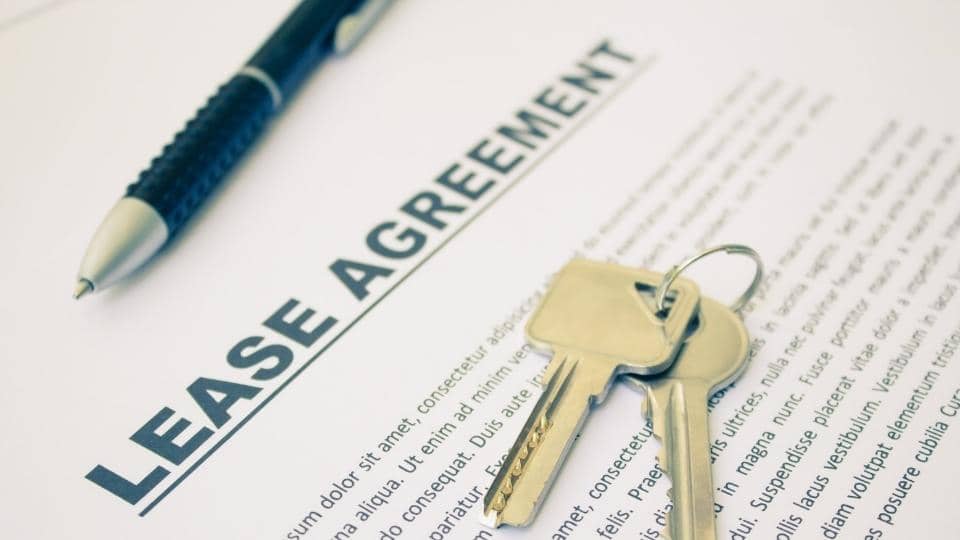Can a Landlord Refuse an Option to Renew?
It can confuse tenants when their landlord refuses to renew their lease. This can leave them wondering what their rights are and whether they have any recourse.
Although landlords can technically refuse to renew a lease when renting property to renters, we will discuss some notable exceptions below.
If you are a tenant facing this situation, knowing your rights and understanding the law are important.
Why Would a Landlord Choose a Non-Renewal Lease?

If the lease doesn’t state otherwise, landlords can generally end leases at the termination date specified in the agreement. They don’t have to tell you why so here are a few reasons that might cause them not to renew your lease.
#1. The landlord wants to sell the property.

Statistics show that many landlords choose not to renew leases to sell their properties. If your landlord recently notified you of their intentions not to renew your lease, there’s a chance they may be considering selling the property. While this isn’t always the case, it’s worth looking into whether or not your landlord has put the property on the market.
#2. The landlord wants to live in the property themselves.
Another common reason landlords choose not to renew leases is that they want to move into the property themselves. If your landlord has been mentioning their plans to move in or renovate, this may be why they choose not to renew your lease.
#3. The landlord wants to rent to a different tenant.
In some cases, landlords want to rent to a different tenant. This could be for several reasons, such as wanting to rent to a higher-paying tenant or someone with fewer occupants.
#4. The landlord is having financial difficulty.
If your landlord is facing financial difficulties, they may decide not to renew your lease to save money. This could mean they struggle to make mortgage payments or meet other financial obligations.
#5. The property is being renovated or redeveloped.
If your landlord plans to renovate or redevelop the property, they may choose not to renew your lease. This allows them to avoid having to deal with tenants during the construction process.
#6. The landlord is not happy with the tenant.
Finally, it’s worth noting that landlords may also choose not to renew leases if they’re not happy with the tenant. This could be for several reasons, such as the tenant being disruptive or causing damage to the property.
#7. It will no longer be a rental property.
In some cases, landlords may choose not to renew leases because they plan to stop renting the property altogether. This could be because they’re selling the property or because they’re going to use it for personal purposes.
These are just a few reasons landlords might choose not to renew a lease. As you can see, various reasons could cause a landlord to make this decision.
It’s important to remember that, in most cases, landlords are within their rights to choose not to renew a lease. However, we will discuss some exceptions to this rule below.
When Can a Landlord Not Refuse an Option?
There are some situations in which a landlord may not be able to refuse an option to renew a lease.
#1. The lease includes an option to renew.
The landlord must honor this agreement if the lease includes an option to renew. This means that unless there is a valid reason not to, the landlord must allow the tenant to renew the lease.
#2. The landlord has retaliated against the tenant.
It’s important to note that landlords cannot retaliate against tenants for exercising their rights. This means a landlord cannot choose not to renew a lease simply because the tenant has complained about repairs or filed a lawsuit. If the landlord does this, they could be guilty of retaliatory eviction.
#3. The landlord has discriminated against the tenant.
Landlords are also not allowed to discriminate against tenants. This means they cannot refuse to renew a lease because of the tenant’s race, religion, gender, or other protected characteristics. If the landlord does this, they could be guilty of discrimination.
#4. The property is subject to rent control.
Finally, it’s worth noting that rent-controlled properties have different rules regarding renewing leases. In most cases, landlords of rent-controlled properties must allow tenants to renew their leases.
These are just a few of the situations in which a landlord may not be able to refuse an option to renew a lease.
What Happens When Your Lease Agreement Isn’t Renewed?
#1. You Might Receive a Lease Non-Renewal Letter
Some state laws require landlords to give tenants a certain amount of notice before their leases are up. This notice is typically in the form of a lease non-renewal letter.
The letter will state that the landlord will not renew the lease and will usually include the date on which the lease will end. In some cases, the landlord may also include information about why they have chosen not to renew the lease.
#2. Find a New Place to Live
If your lease isn’t renewed, you’ll need to find a new place to live. This process can be stressful, but you can do a few things to make it easier.
First, give yourself plenty of time to find a new place. It’s best to start looking for a new home at least a few months before your lease ends. This will give you plenty of time to compare different properties and find the perfect place for you.
You may also look online for rental listings in your area. This can be a great way to find a new place to live, as you’ll be able to see all of the available rentals in one place.
Finally, you may want to ask friends and family for recommendations. They may know of someone looking for a tenant, or they may have heard of a great property available for rent.
Remember that if you’re renting on a month-to-month lease, the landlord may give you a 30-day notice to vacate the property. You’ll need to find a new place to live within 30 days.
#3. Move out respectfully
Once you’ve found a new place to live, you must move out respectfully. You’ll need to clean the rental unit and return all the keys to the landlord. You should also make sure to give your forwarding address to the landlord so they can send you your security deposit.
Few Things to Keep in Mind About a Notice of Non-Renewal
If you don’t get to renew your lease, there are a few more things to bear in mind. These can assist you in better understanding your rights and the obligations of any other parties involved.
#1. A reason isn’t required.
As a tenant, you don’t have to specify a reason for why you’re moving out. You can give your landlord the required notice and move out when your lease is up. There’s nothing anyone can do if one of the parties decides not to renew the lease.
#2. Refusing Lease Renewal is not always bad.
Refusing a lease doesn’t always mean the landlord is trying to get rid of a tenant. In some cases, the landlord may have decided not to renew the lease because they’re planning on selling the property or needing repairs.
#3. You can ask the reason.
If you’re curious about why your landlord has decided not to renew your lease, you can always ask them. They may not be required to give you a reason, but they might be willing to tell you anyway.
If you have been a punctual, respectful tenant who has never caused any damage to the property, your landlord may be willing to explain why they do not want to renew your lease.
#4. End Your Lease on Good Terms
Even if your lease isn’t renewed, you can still end things on good terms with your landlord. This means that you should pay all your rent on time and leave the rental unit in good condition. If you do this, your landlord may be more likely to give you a positive reference for future landlords.
Also Read: Can Landlord Change Locks After 3-Day Notice?
The Bottom lines
Being told that your lease won’t be renewed can be stressful, but it’s important to remember that you have rights as a tenant. If you’re respectful and take the time to find a new place to live, everything will work out.






